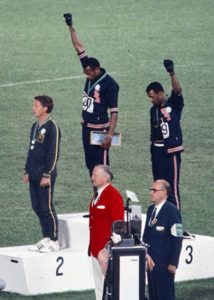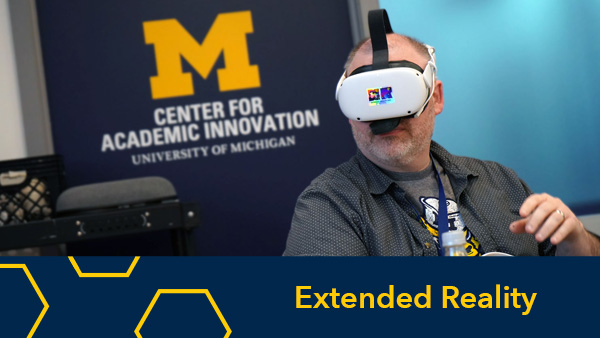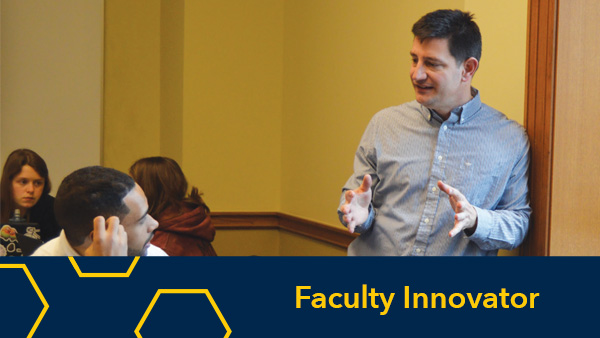University of Michigan Teach-Out explores Free Speech in Sport and its legal, sociological and economic implications
Sean Corp, Content Strategist

Political expression and political activism in sports are growing as young, socially conscious athletes use their platforms and positions of power to highlight causes they believe in, from police brutality to voting rights. What began with Colin Kaepernick taking a knee during the national anthem in 2016 grew. Most recently, the Milwaukee Bucks players refused to take the court for an NBA playoff game against the Orlando Magic.
The Free Speech in Sport Teach-Out explores the history and implications of free speech issues and the impacts of political activism in sports, and reactions from the fans who follow the sport and might disagree with the political statements.
The Bucks’ move was in response to the Aug. 23 shooting by police of Jacob Blake, who took seven bullets in the back with his young children in the car as he attempted to re-enter his vehicle. The incident took place in Kenosha, Wisconsin, just 30 minutes from where Milwaukee usually plays its home games. The team’s action led to the suspension of several more playoff games, and some teams from the WNBA to Major League Baseball followed suit and refusing to play.
As long as these protests have been capturing headlines, so has the pushback from social commentators, politicians, and fans. In an era of “shut up and dribble” against “I can’t breathe,” it’s important to take a step back and understand what is happening in the sports world and its impact within society.
Join the Conversation | Enroll in the Free Speech in Sport Teach-Out
Sports have always been political, and sports themselves have always been a form of unique expression — for the athletes, the leagues, and the fans who follow them. You can learn more about these issues and more in University of Michigan’s Free Speech in Sport Teach-Out.
Political activism and sports have always been intertwined, most famously in 1968 when Tommie Smith and John Carlos raised black-gloved fists in the air during the Star-Spangled Banner. Criticism of their gesture was swift, with the International Olympics Committee moving to expel the two from the Olympic Village and sportswriters such as Brent Musberger, who wrote at the time that Smith and Carlos were “a couple of black-skinned storm troopers.”
Created in 2018, the two-week Teach-Out features discussions about the first amendment implications of speech at sporting events, and sports as a social movement. The Teach-Out also explores the history of the national anthem at sporting events with a veteran sharing his thoughts on players demonstrating during the anthem. There is also a roundtable discussion of U-M athletes about activism in sports.
Ketra Armstrong, a U-M professor of sport management, U-M NCAA athletics representative, and former student-athlete, hosts the Teach-Out and guides the discussions. Joining her for discussions include law professor Sherman Clark, Vernon Andrews, a sports sociology scholar at San Jose State University, U-M political science professor Christian Davenport, U-M professor and veteran Eric Fretz and U-M musicology professor Mark Clague, U-M Director of Athletics Warde Manuel, associate professor of sport management Dae Hee Kwak, and professor of sport management and urban planning Mark Rosentraub. The roundtable discussion features former U-M student-athlete and Olympian Jeff Porter, and student-athletes Jeryne Fish and G Ryan.
Understanding the political history of activism in sports and the real-time reaction to those actions in addition to the political, social, and financial implications helps people better process and understand what is happening today.
Already, the move by the Milwaukee Bucks players has led to action. Steps taken or planned include a firmer commitment within the NBA to establishing sports arenas as voting sites for the November presidential election and Bucks players and other athletes have spoken to the family of Jacob Blake, the attorney general of Wisconsin, former President Barack Obama, and others.


